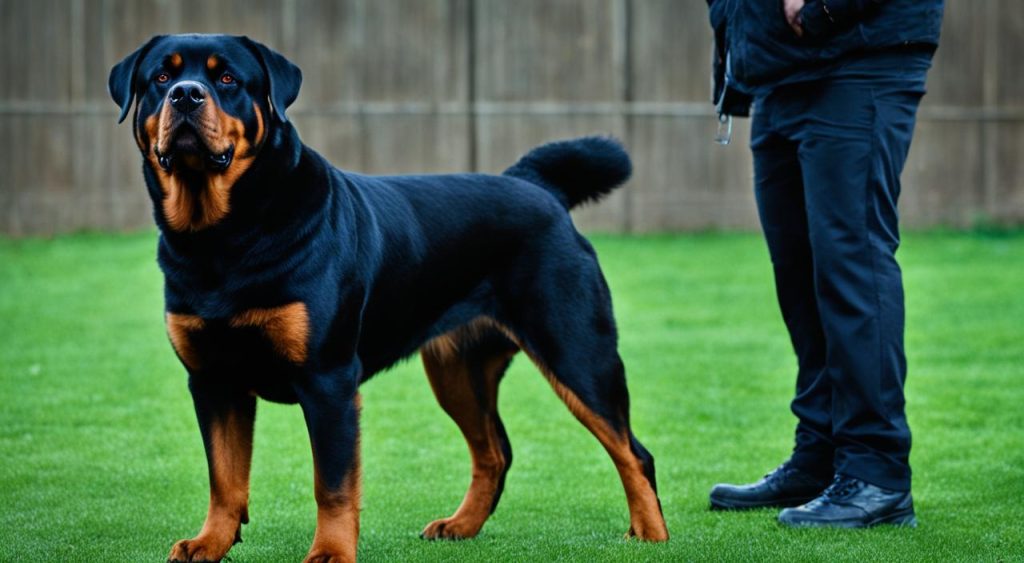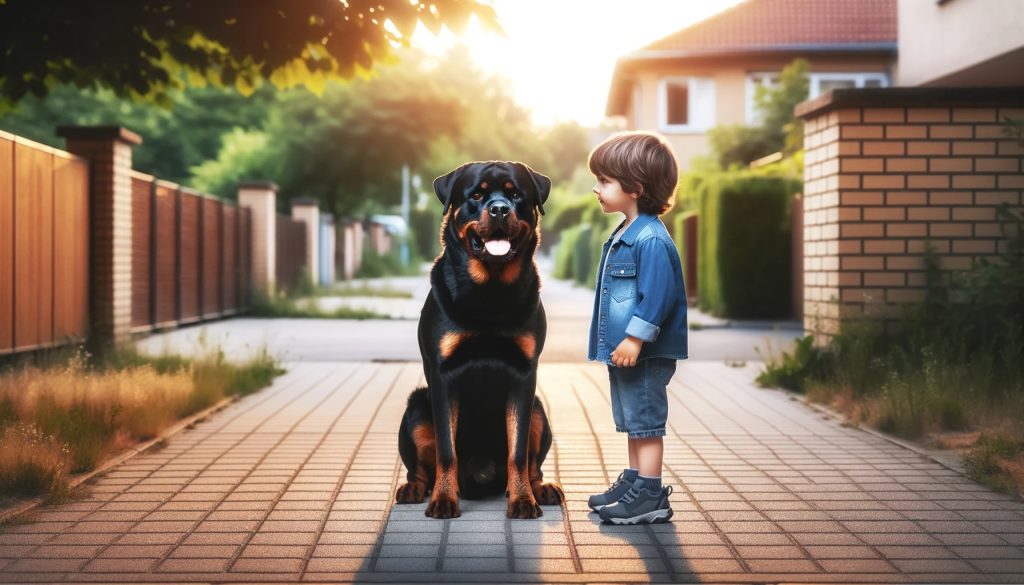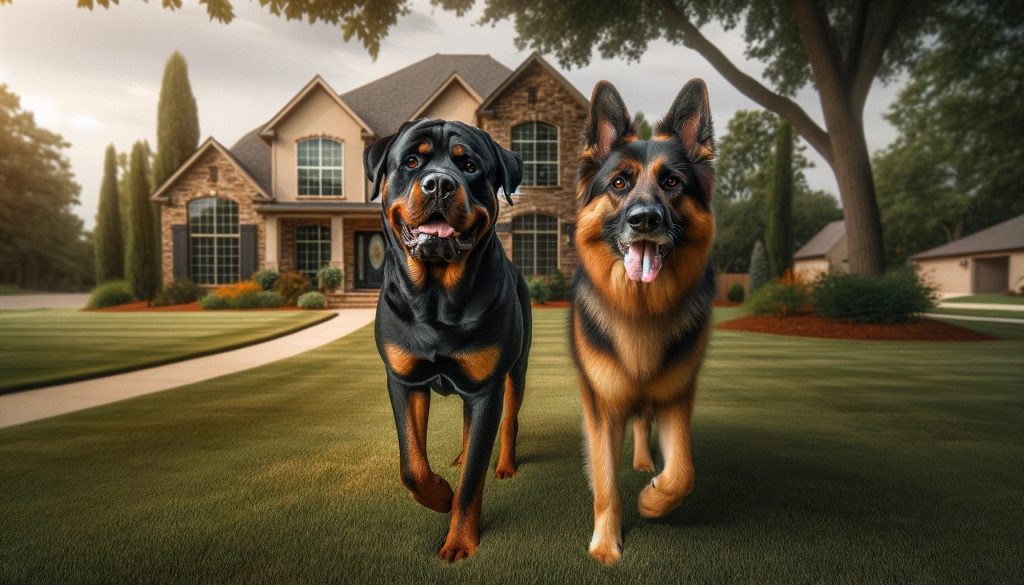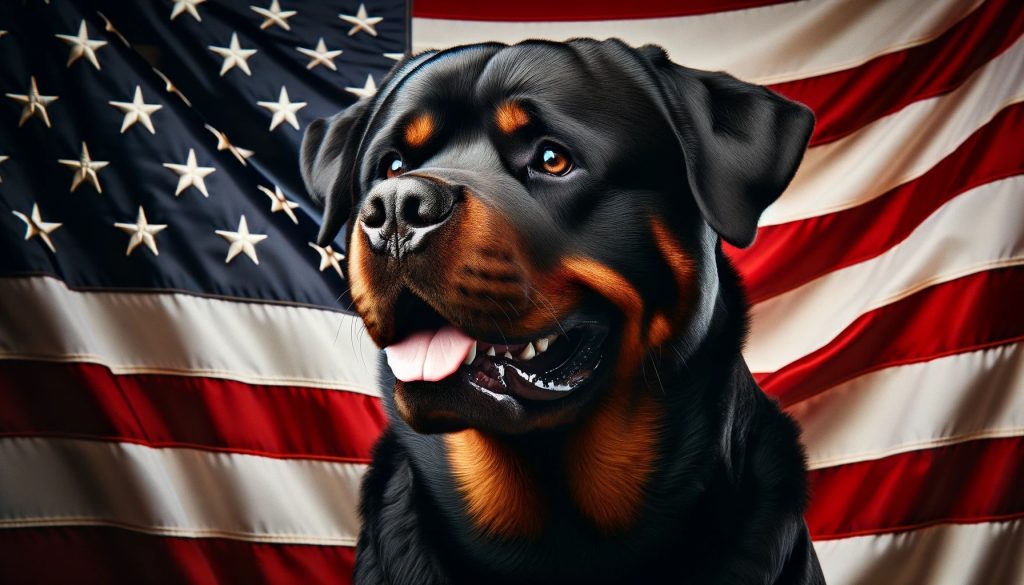When it comes to a Rottweiler’s ability to protect its owner without training, appearance and reputation alone are not enough. Just because a dog looks like a Rottweiler doesn’t mean it will act as a natural guardian. Specific qualities and genetic traits are required for a Rottweiler to function effectively as a protector. These traits are found in certain lines of Rottweilers, and responsible breeders carefully select and incorporate dogs with demonstrated capability in the protection field.
Dogs with show titles are unlikely to possess the genetic potential for protection, as dog shows prioritize appearance over function. Proper training and socialization are also crucial in developing a Rottweiler’s protective instincts and ensuring that they can distinguish threats and react appropriately.
Key Takeaways:
- A Rottweiler’s ability to protect without training is not guaranteed, as specific genetic traits are required.
- Show titled Rottweilers are unlikely to possess the necessary genetic potential for protection.
- Proper training and socialization are crucial in developing a Rottweiler’s protective instincts.
- A Rottweiler’s appearance alone does not determine its ability to act as a natural guardian.
- Responsible breeders select dogs with demonstrated capability in the protection field.
The Innate Protective Instincts of Rottweilers
Rottweilers are natural protectors, with strong guarding instincts deeply rooted in their genetics. These dogs have a long history as working dogs, serving alongside Roman legions as war dogs. Over the centuries, they have evolved to become exceptional protectors of their owners and their territory.
With their large, muscular build and powerful jaws, Rottweilers are formidable guardians. Their mental tenacity further enhances their protective capabilities, making them fully dedicated to ensuring the safety of their owners.
While instances where a Rottweiler needs to physically protect its owner are rare, their presence alone is often enough to deter potential threats. The mere sight of a Rottweiler can be a powerful deterrent, thanks to their intimidating size and protective aura.
“Rottweilers are often considered apex protectors, capable of defending their owners against any perceived threat.”
However, it is important to note that while Rottweilers possess innate protective instincts, proper training and socialization are crucial in harnessing and enhancing these instincts. Training from a young age helps shape their behavior, ensuring they respond appropriately to various situations and distinguish genuine threats from harmless ones.
Rottweilers have a natural inclination to be guardians, but it is essential to nurture and channel their protective instincts effectively through training and socialization. With the right guidance, Rottweilers can become loyal, loving, and confident protectors, offering peace of mind to their owners.
Importance of Training for Rottweilers
While Rottweilers possess innate protective instincts, it is vital to provide them with proper training to ensure these instincts are channeled appropriately. Without training, Rottweilers can become potentially dangerous and unpredictable, posing a risk to both themselves and their owners. As powerful dogs, their strength can cause harm if not properly controlled.
Untrained Rottweilers may perceive every person or animal as a threat, including those they should recognize as part of their family. This heightened sense of vigilance can lead to aggression and reactive behaviors that are unnecessary and potentially alarming to others.
To foster a composed, calm, and discerning response to potential threats, it is essential to start training Rottweilers from a young age. This training involves teaching them to differentiate between genuine threats and harmless situations, enabling them to make appropriate decisions in various circumstances.
Equally important is socialization, which helps Rottweilers learn appropriate behavior around other people and animals. By exposing them to a variety of environments, sights, sounds, and experiences, we can help them develop confidence and become well-rounded canine citizens.





